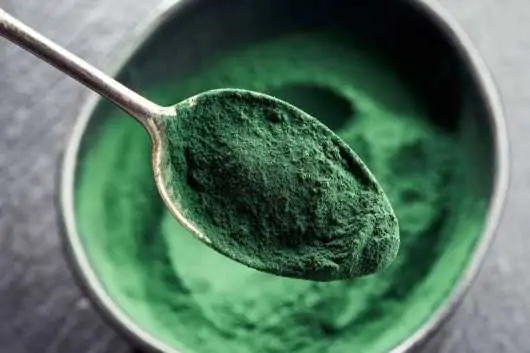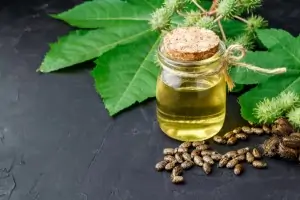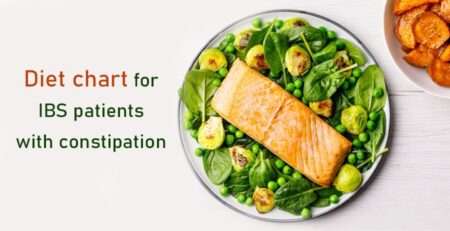Have you discovered spirulina? Recognized as a superfood, spirulina is a powerful health addition to your diet. Not only is it packed with nutrition, but scientists also take its health benefits seriously. Multiple research studies have been done on spirulina. (1)
It’s been used as a food for centuries, even by the ancient Aztecs, and was taken into space as a healthy dietary supplement by astronauts on space missions.
Table of Contents
What is spirulina good for?
Spirulina is blue-green algae, cyanobacteria. Packed with protein, minerals and vitamins, it’s suitable for both adults and children. In addition, it’s a nourishing food supplement for vegetarians and vegans, helping them to ensure that their diet is healthy and complete.
Not only does spirulina contain up to 70% of protein, it contains calcium, magnesium and iron, as well as an impressive array of vitamins and essential minerals. When measured by weight, it’s amazingly nutritionally dense.
A three-gram serving provides many of the nutrients necessary for optimal health. Scientists have widely studied the health benefits of spirulina, and their results have been published in peer-reviewed journals around the world. A growing number of clinical trials and studies consistently agree on these attributes:
- Sustained energy
- Year-round immune support
- Heavy metal and radiation reduction
- Antioxidant benefits
- Essential iron source
- Brain cell support
- Liver and kidney support
- Cardiovascular health maintenance (6)
Let’s look more closely at some everyday health benefits of spirulina. Although the benefits are numbered below, they’re in no special order.
1. If you’re concerned about your diet, spirulina supplies missing nutrients
If you’re concerned that your diet leaves you lacking because you’re missing meals or for some other reason, spirulina may help.
It’s especially useful for anyone who’s on a vegetarian or vegan diet. Technically speaking, since spirulina is a cyanobacteria, it’s neither an animal nor a plant, so it can be eaten by anyone who’s on a plant-based diet. For vegans who are sensitive to yeast, spirulina is a good source of B vitamins, including B12.
If your child is a picky eater, spirulina may help to supply nutrients that are missing from your child’s diet. However, although spirulina is thought to be safe for children, it’s best to be guided by your medical practitioner—no clinic studies have been done on the health benefits of spirulina for children.
2. Spirulina may assist with inflammatory conditions
Inflammation seems to act as a trigger to several diseases. Organic spirulina contains antioxidants, including a plant protein: phycocyanin, which combats free radicals. Research shows that phycocyanin has anti-inflammatory effects.
3. If you’re suffering allergies, spirulina may help
A study of allergic rhinitis (1) showed that spirulina offered relief for symptoms including itching, sneezing, and nasal congestion.
If you dread spring each year because you spend it sneezing, try spirulina. Its anti-oxidant properties may help if you’re suffering seasonal allergies, relieving associated symptoms, discomfort and pain.
4. Need more energy? Spirulina gives you a boost
It’s thought that the ancient Aztecs used spirulina to boost their endurance at altitude. If you suffer fatigue, spirulina may provide energy.
Termed a complete protein, spirulina not only includes essential minerals and vitamins, it also improves your body’s uptake of iron.
Iron is essential for the movement of oxygenated blood in your system. A lack of iron leads to exhaustion because iron directly affects your red blood cells which transport oxygen.
An excess of free radicals in your body may lead to oxidative stress, which also results in exhaustion. Spirulina supplies you with plentiful antioxidants, which eliminate excessive amounts of free radicals.
6. Want more radiant skin? Spirulina may benefit skin health
Since skin is the largest organ in our body, it’s a good barometer of your overall health. Spirulina is packed with nutrients, including vitamins that promote healthier skin, hair and nails, including vitamins A, E, and B12. (5)
Since it’s also packed with antioxidants that control excess free radicals, spirulina may help your skin to look more youthful and slow the appearance of wrinkles.
7. Spirulina can benefit the aging by boosting their immune system
As we age, so does our immune system. This makes seniors more prone to illnesses and infection and spirulina can help. (4)
In addition to benefiting a slowing immune system, a study also showed that spirulina was useful in the treatment of anemia, which is also prevalent in seniors.
So if you’re caring for an elderly relative, it’s reassuring that research shows that spirulina assists with overall health in seniors.
Who should avoid spirulina?
Although it’s generally considered a safe food source, spirulina has been known to cause insomnia, headaches and sweating in some people. If you’re sensitive and have allergies, especially an allergy to seafood or seaweed, you may wish to avoid spirulina or seek medical advice.
Since it activates your immune system, you should also avoid spirulina if you suffer from an autoimmune disease such as lupus or multiple sclerosis.
How to take organic spirulina? Spirulina powder is easy to add to foods
When you’re looking for a source of spirulina to add to your family’s diet, choose organic spirulina and one which comes from an area known to be 100% pollution-free.
Add organic spirulina powder to your meals and smoothies. You’ll become used to its green and slightly earthy taste, and may experience the benefits of this “king of superfoods”.
Reference: sources
(1) Spirulina in Clinical Practice: Evidence-Based Human Applications
(2) What are the benefits of spirulina?
(3) Spirulina: Are There Health Benefits?
(4) The effects of Spirulina on anemia and immune function in senior citizens
(5) Hawaiian Spirulina – Gerald R. Cysewski, Ph.D.
Disclaimer: This article is a paid publication and does not have journalistic/editorial involvement of HealthAndHealthier. HealthAndHealthier does not endorse/subscribe to the content(s) of the article/advertisement and/or view(s) expressed herein. HealthAndHealthier shall not in any manner, be responsible and/or liable in any manner whatsoever for all that is stated in the article and/or also with regard to the view(s), opinion(s), announcement(s), declaration(s), affirmation(s) etc., stated/featured in the same.
Disclaimer






1 Comment
Thanks for posting such a great post and sharing a piece of excellent information. really you deserve an appreciation and glad that you have shared the useful information with us.